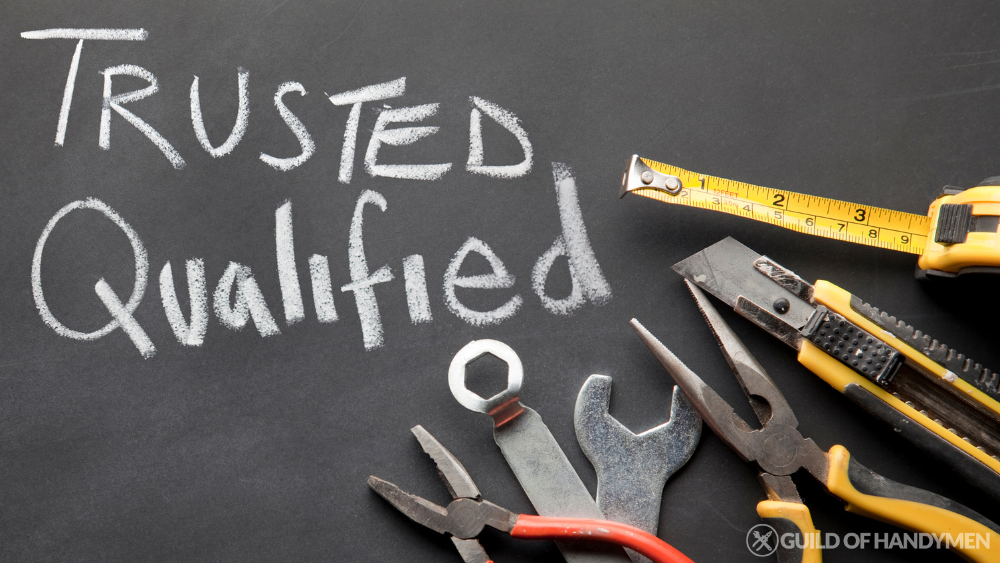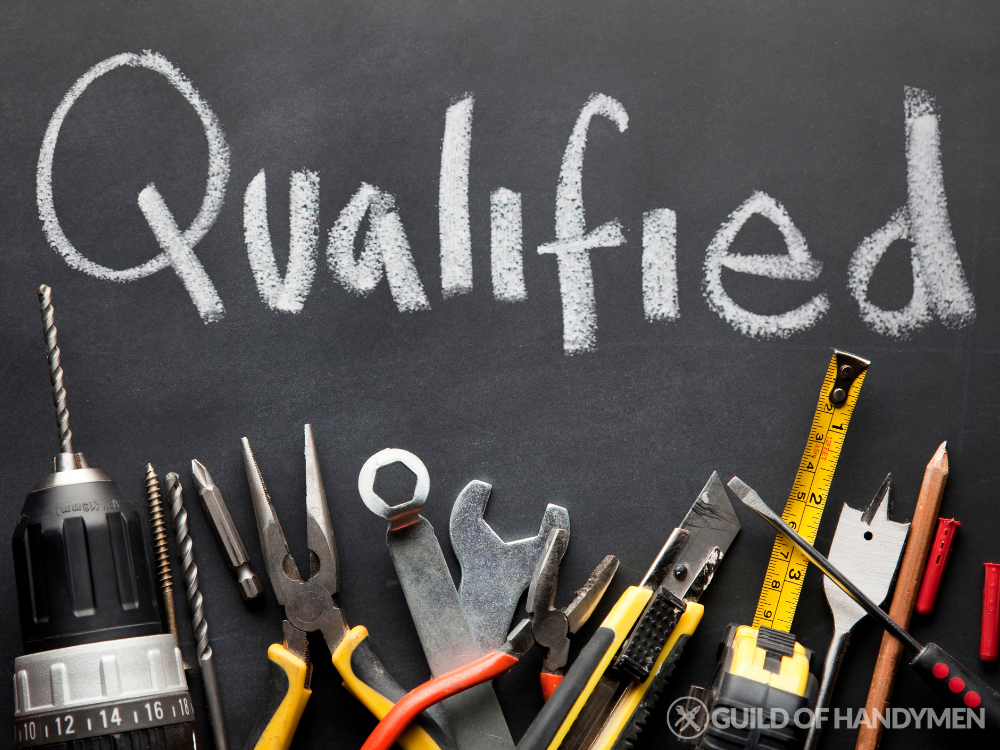Hiring a handyman can be a bit daunting if you’re not sure what to look for, especially when it comes to assessing their qualifications. Knowing what certifications, licenses, and qualifications mean is essential to ensuring you get a skilled professional who can handle your home repairs or projects safely and effectively. In this article, we’ll explore the common qualifications handymen may have and why they matter.
This blog is part of our series on how to hire a reliable handyman – sharing everything you need to know to get the best handyman for your needs.
What Makes a Qualified Handyman?
Not all handymen are created equal. While some can take on a wide range of tasks without formal training, others specialise in areas that require specific certifications or licences. Understanding these qualifications will help you decide who is best for the job.
Here’s a breakdown of what to expect:
1. Professional Certifications
Certifications can be a great way to gauge a handyman’s knowledge and skill level. They are often awarded by industry bodies and demonstrate a commitment to high standards of workmanship. Here are some common examples:
- City & Guilds Certifications: These are well-known qualifications across the UK, covering various trades such as carpentry, plumbing, and electrical work. If a handyman has a City & Guilds qualification, it shows they’ve had formal training in their field.
- NVQs (National Vocational Qualifications): These hands-on qualifications reflect a person’s ability to carry out a trade. NVQs cover everything from basic construction skills to more complex tasks like electrical installations.
- Gas Safe Registration: If your job involves gas work, only a registered Gas Safe engineer is legally allowed to handle it. This isn’t just a qualification but a safety requirement in the UK.
2. Licensing Requirements
Unlike some countries where handymen need a general licence to operate, the UK doesn’t require a universal handyman licence. However, some specific tasks do demand a licensed professional:
- Electrical Work: To carry out electrical work in the UK, handymen need to be Part P certified. This ensures they understand the safety standards required when dealing with household electrics.
- Plumbing Work: Most basic plumbing tasks don’t require a licence, but anything complex (like working on a boiler) may require an individual to be a registered plumber or hold relevant certifications.
When a handyman claims they can perform specialised work, it’s crucial to check these credentials. For anything beyond basic repairs, a licence or proper registration ensures the job is done up to safety standards.
3. Memberships and Trade Associations
Another indicator of a handyman’s reliability is whether they belong to any trade associations. Memberships in these groups usually mean a handyman has been vetted and meets high industry standards. Common associations include:
- Federation of Master Builders (FMB): This is one of the largest trade bodies for builders in the UK. FMB membership suggests the handyman or builder follows a strict code of practice and is insured.
- TrustMark: A government-endorsed scheme, TrustMark recognises tradespeople who meet high standards and are regularly inspected for quality.
- Association of Plumbing and Heating Contractors (APHC): Members of the APHC have to meet technical standards and abide by a professional code.
Membership isn’t mandatory, but it shows a handyman is committed to quality and ongoing improvement.
4. Experience and References
While certifications and licenses are important, experience counts for a lot in handyman work. A handyman with years of experience and strong references from previous clients is often more reliable than someone who’s freshly qualified but hasn’t had much hands-on practice.
It’s perfectly reasonable to ask for examples of previous work or request references from former clients. A reputable handyman should be happy to share this information.
5. Insurance Coverage
Insurance is a must-have for any professional handyman. The most common types of insurance include:
- Public Liability Insurance: This covers any damage to your property or injuries that happen as a result of the handyman’s work.
- Professional Indemnity Insurance: Although less common for general handymen, this covers any financial losses you may suffer due to faulty work.
Before hiring, always check if your handyman is insured. It adds an extra layer of protection and peace of mind, knowing you won’t be liable if something goes wrong.
Why Qualifications Matter

Knowing your handyman’s qualifications helps ensure you hire someone capable of doing the job safely and to a high standard. While it may be tempting to go for a cheaper, uncertified option, it can often lead to additional expenses or even safety hazards down the line. Remember, for tasks involving electrics or gas, using an unqualified handyman isn’t just risky—it’s illegal.
How to Verify a Handyman’s Credentials
So, how do you check a handyman’s qualifications? Here are a few simple steps:
- Ask to See Their Documents: Don’t be shy about requesting to see proof of their certifications or memberships.
- Check Online Registers: For things like Gas Safe Registration, you can verify their status on the official register.
- Look at Reviews and References: Platforms like Checkatrade, TrustMark, or Rated People provide customer feedback and can give you an idea of the handyman’s reputation.
Key Takeaways
- Certifications and licenses are important indicators of a handyman’s expertise and the types of tasks they’re legally allowed to perform.
- Memberships in trade associations add an extra layer of trust, suggesting a commitment to high standards.
- Insurance coverage protects you and your property from unexpected mishaps or accidents.
- Experience and references are just as valuable as formal qualifications—make sure to ask for them.
- Always verify credentials for tasks that involve gas, electrics, or major plumbing to stay on the right side of safety and the law.
Understanding these qualifications will help you hire a handyman who can do the job right and give you confidence in your home improvement projects.

